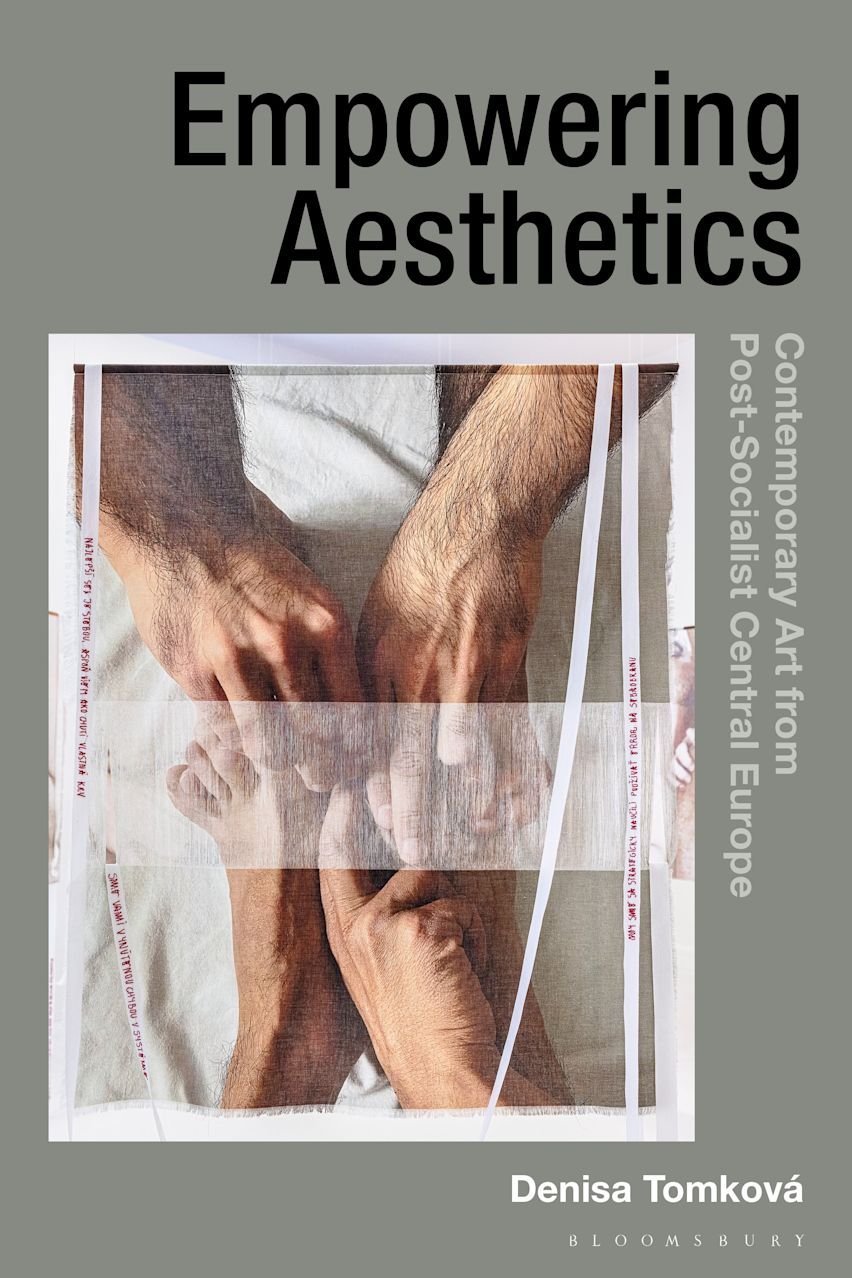Empowering Aesthetics
Contemporary Art from Post-Socialist Central Europe
A lecture by Denisa Tomková, curated by Elke Krasny at the Institute for Education in the Arts, Art and Education program.
Empowering Aesthetics weaves together case studies from the post-socialist Central European region (the Czech Republic, Hungary, Poland, and Slovakia) to show how art can provide critical support to gender, sexual and racialized groups. The empowering aesthetics employed by the artists in this book are not only urgent and critical, but also vitally personal, each chapter building a clear understanding of what social equality looks like in these specific political and geographic contexts. Engaging with contemporary philosophy and feminist, queer and decolonial (art) theory (Sara Ahmed, Judith Butler, Angela Dimitrakaki, Boris Groys, Jack Halberstam, Grant Kester, Ewa Majewska, Paul B. Preciado, Legacy Russell, Madina Tlostanova, etc.), this book highlights a shift in the understanding of the artwork and aesthetic experience that is durational rather than immediate, drawing attention to a given community. Empowering aesthetics follows the lineage of conceptualization of weak resistance (Majewska 2021), queer art of failure (Halberstam 2010), and the politics of vulnerability (Butler 2020).
Moreover, drawing on the thinking of feminist Writers and theorists, the conceptualisation takes into account material demands and social, economic and educational opportunities in artistic production. Empowering Aesthetics also highlights that the exclusion of particular artistic production is ever-present as aconsequence of aesthetic discrimination in which some art is perceived as naive, ethnic, primitive, unschooled or folkloric (Baker 2011; Brooks 2015; Tlostanova 2017), and therefore offers a decolonial reading of these practices. This volume highlights that empowering aesthetics perform an important function in combating the rise of nationalism, homophobia, transphobia, and xenophobia in the region, while contributing to building an inclusive collective memory that emancipates systematically marginalized individuals.
Denisa Tomková is an assistant professor at the Faculty of Humanities, Charles University in Prague. She holds a PhD in Visual Culture from the University of Aberdeen, UK (2019). In 2023, Tomková (together with Kvet Nguyen) curated the first group exhibition of art of the Vietnamese diaspora in Slovakia, Nhớ: The Space Between One End and the Other, at the Kunsthalle Bratislava. Between 2019 and 2021, Tomková worked for the European Roma Institute for Art and Culture (ERIAC) in Berlin as a researcher, curator, and project coordinator. Between 2015-2018, she was a member of the international research project “Comparing WE’s. Cosmopolitanism. Emancipation. Postcoloniality” based at the University of Lisbon. She is the editor of the anthology Wandering Concepts (Kunsthalle Bratislava 2023) and the author of the monograph Empowering Aesthetics. Contemporary Art from Post-Socialist Central Europe (Bloomsbury Academic 2025).
